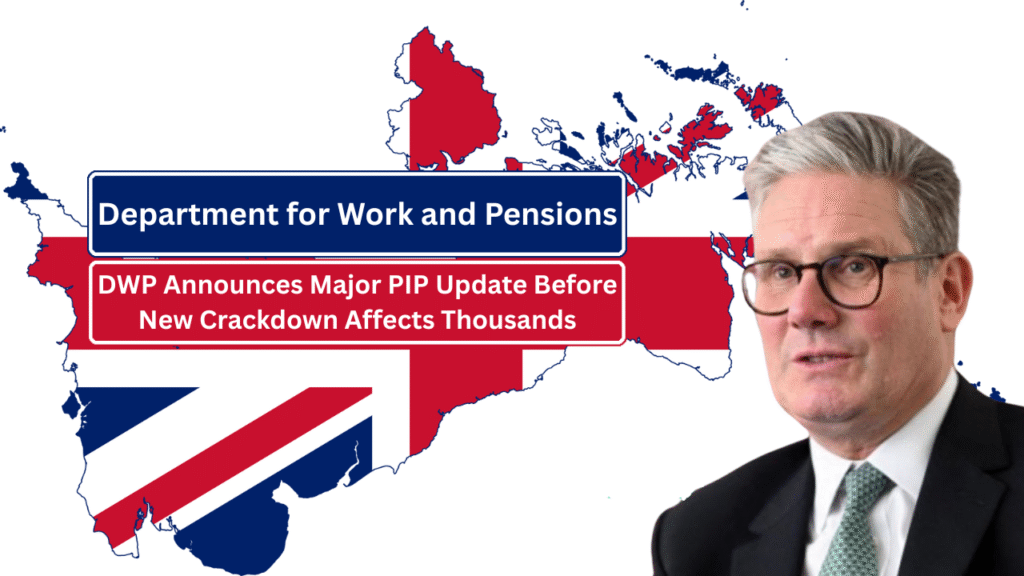The UK government has announced significant reforms to the Personal Independence Payment (PIP) system, set to take effect from November 2026. These changes aim to tighten eligibility criteria, potentially impacting hundreds of thousands of claimants and their carers.
What Is Changing?
Under the new rules, individuals applying for or undergoing reassessment for PIP’s Daily Living Component will need to score at least four points in one activity and a total of eight points overall to qualify. This marks a departure from the current system, where points are accumulated across various activities without a minimum threshold per activity.
The Daily Living Component provides financial support to those requiring assistance with essential daily tasks such as preparing food, managing medications, and personal hygiene.
The Department for Work and Pensions (DWP) estimates that by the 2029/30 financial year, approximately 800,000 individuals may lose eligibility for this component. Consequently, around 150,000 carers who rely on Carer’s Allowance or the Universal Credit Carer’s Element could also be affected, as these benefits are contingent upon the care recipient’s qualification for PIP.
Financial Implications
The potential loss of the Daily Living Component could result in significant financial setbacks for affected individuals. Currently, the standard rate stands at £73.90 per week, while the enhanced rate is £110.40 per week. Over a year, this equates to a loss ranging from approximately £3,800 to £5,700.
For carers, the cessation of Carer’s Allowance or the Universal Credit carer element could mean an annual reduction of up to £4,500. This financial blow would significantly affect those already managing on tight budgets and may result in increased hardship among some of the UK’s most vulnerable groups.
Government’s Rationale
The reforms are part of a broader government initiative to reduce welfare spending by £5 billion annually by 2030. Officials argue that the measures will help encourage employment among those capable of working while ensuring the sustainability of the benefits system over the long term.
Work and Pensions Secretary Liz Kendall has said that the goal is to develop a fairer and more efficient assessment process. As part of this overhaul, the government plans to phase out the existing Work Capability Assessment and create a unified system that considers both work readiness and PIP eligibility in a more streamlined way.
Criticisms and Concerns
The proposed changes have sparked strong criticism from disability advocates, opposition MPs, and various welfare organisations. Concerns largely focus on the risk of increased poverty and financial insecurity among vulnerable populations, particularly individuals with mental health conditions or less visible disabilities who may find it more difficult to meet the revised thresholds.
Campaigners have also highlighted the emotional toll of reassessments and the administrative burden placed on claimants, which could worsen under the new rules. Many have called for the DWP to reconsider or consult further with disabled communities before implementing such wide-reaching changes.
Next Steps for Claimants
For current and prospective PIP claimants, understanding and preparing for the changes is crucial. While the changes won’t come into effect until November 2026, early preparation can help ensure continued access to support where eligible.
Claimants are encouraged to:
- Review the updated assessment criteria once published by the DWP.
- Collect and retain medical evidence that demonstrates the impact of their condition on daily living activities.
- Seek advice from support organisations such as Citizens Advice or disability advocacy groups.
- Monitor updates on official platforms such as GOV.UK and the Department for Work and Pensions announcements.
Conclusion
The impending reforms to the PIP system mark a significant shift in the UK’s approach to disability support. While the government argues that these changes are necessary to safeguard public spending and promote workforce participation, the potential negative effects on claimants and their carers are considerable.
As the implementation date nears, those impacted will need to remain vigilant, informed, and proactive. Seeking support early, staying engaged with advocacy groups, and keeping abreast of official updates will be vital for navigating the challenges these reforms may bring.




